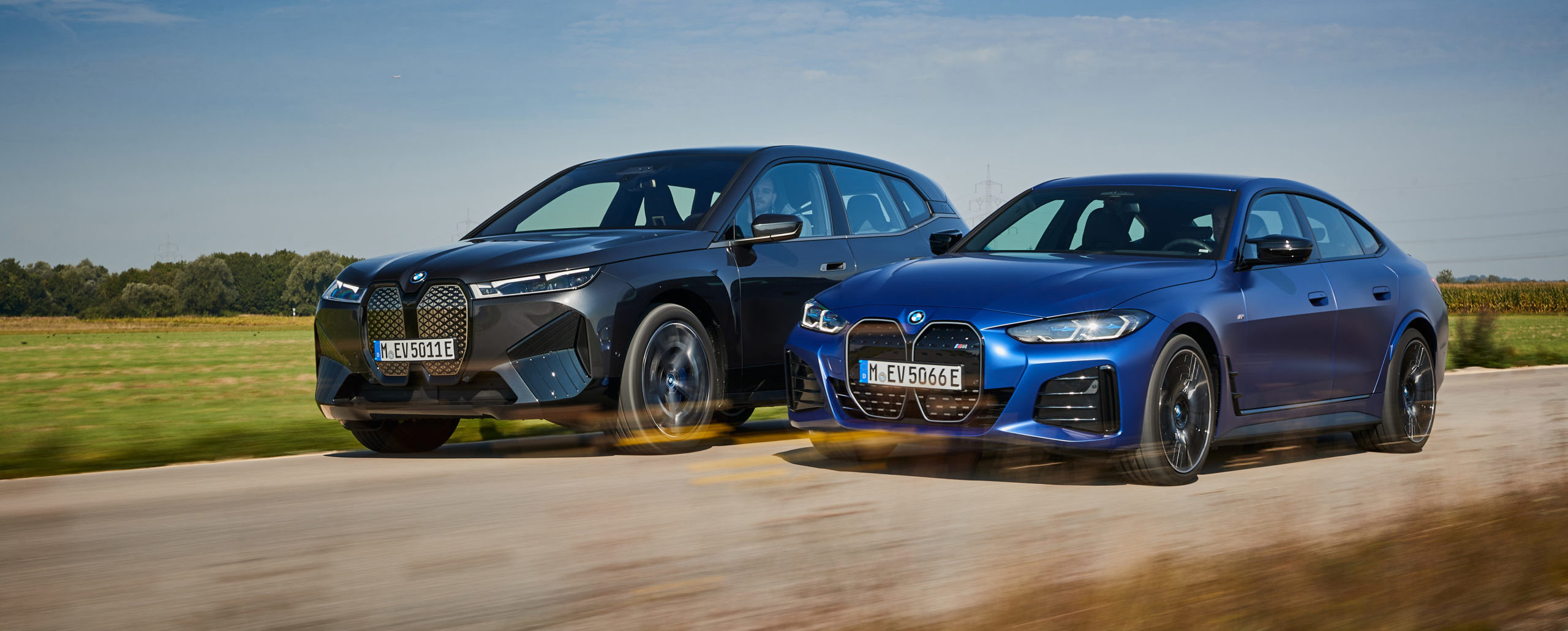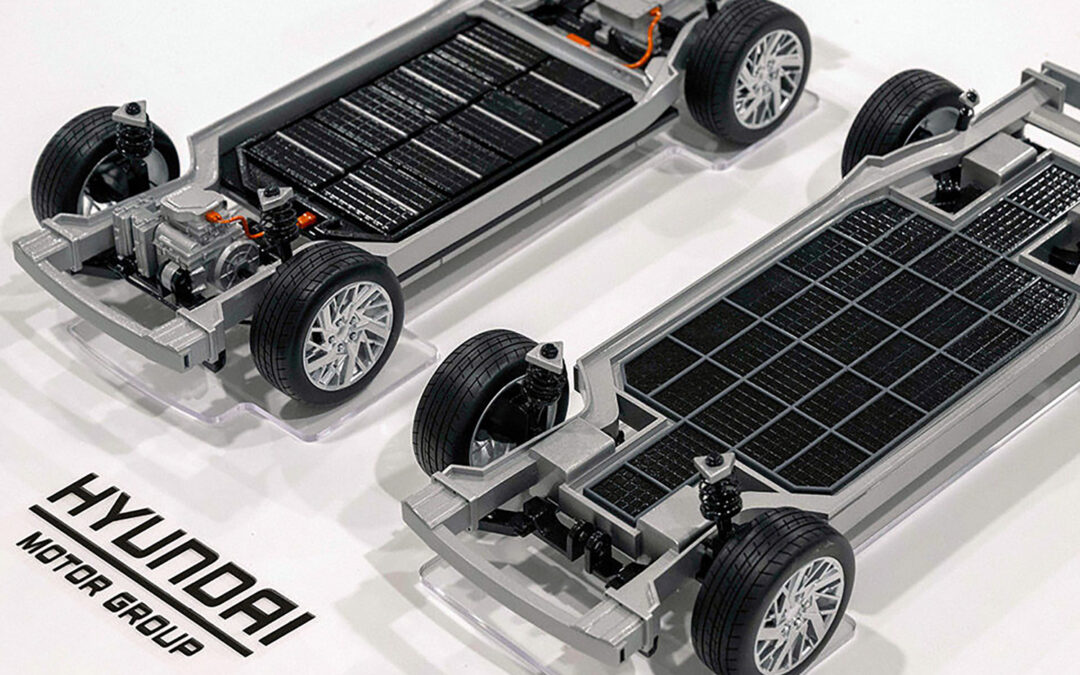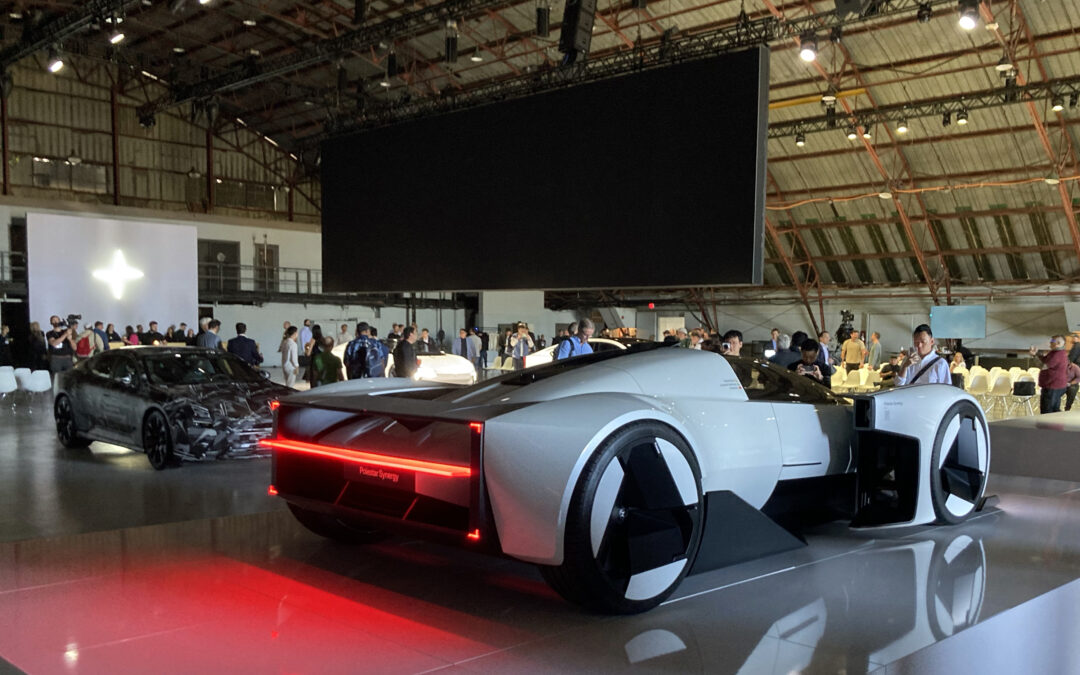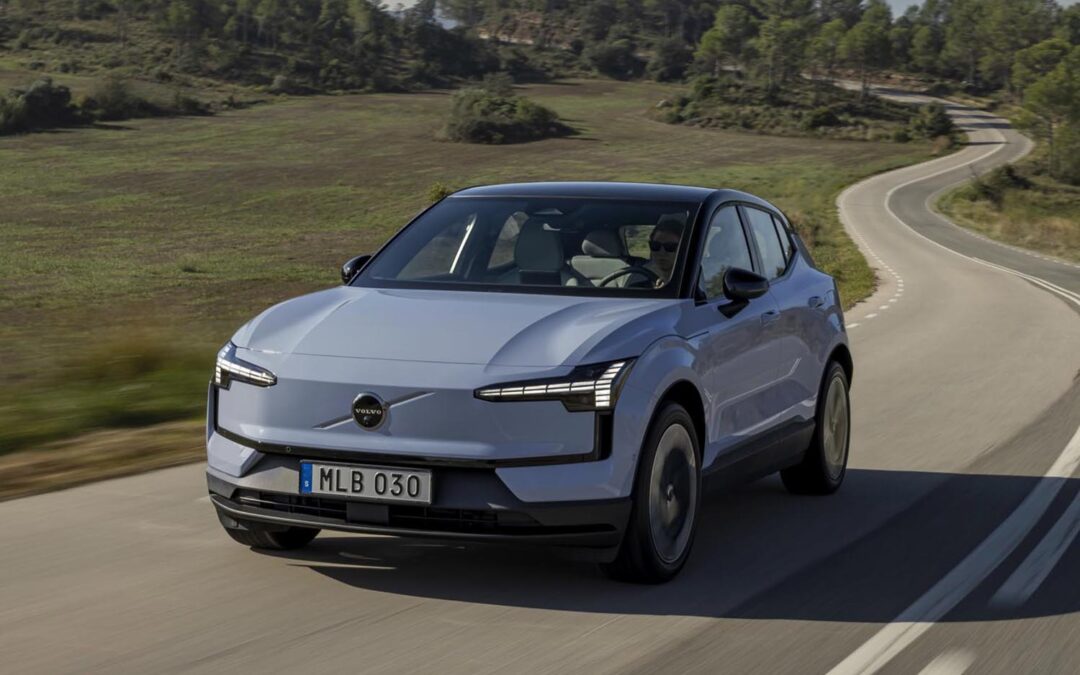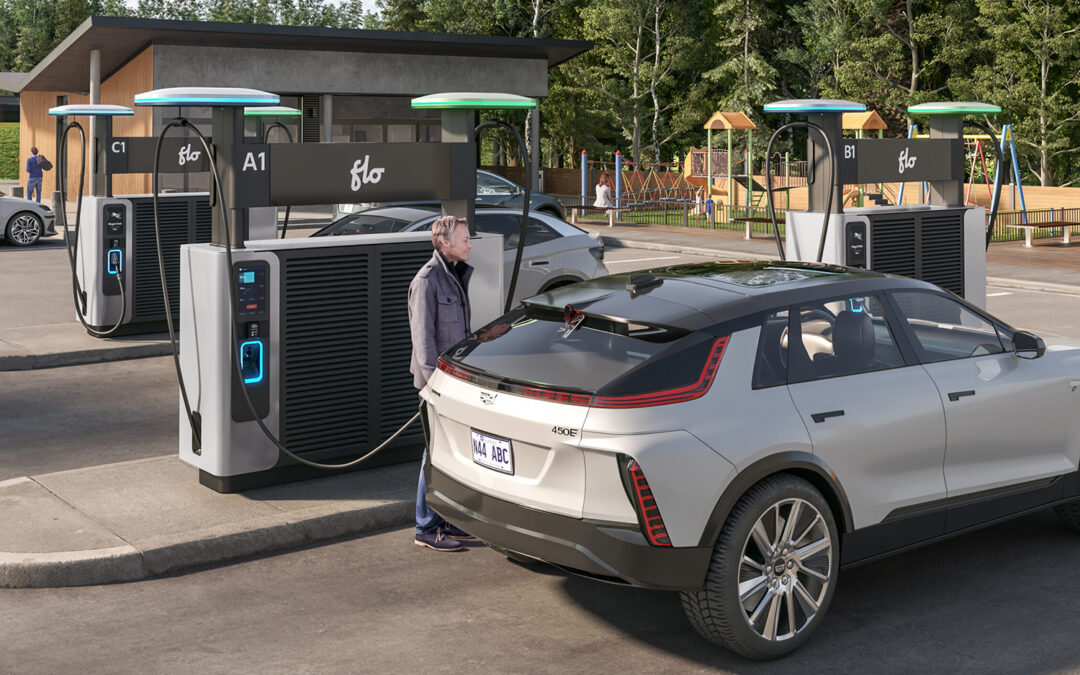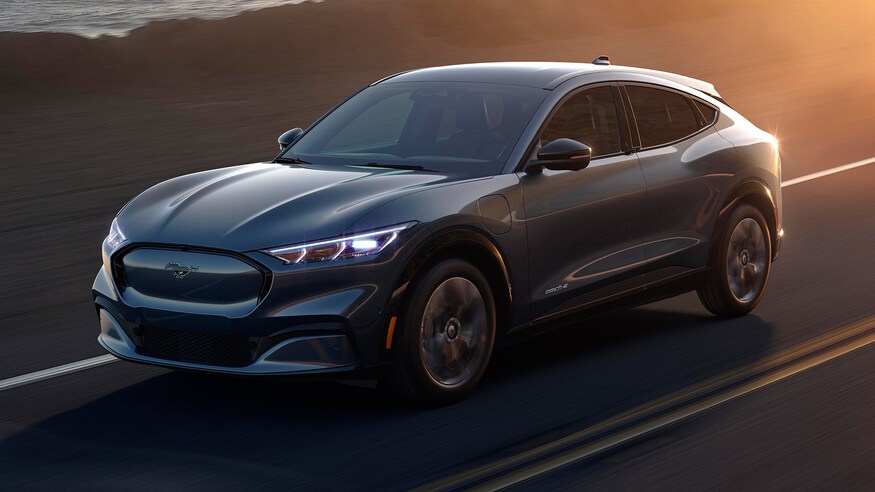Sales of electric BMWs and Mercedes increased significantly in the first quarter of 2022, with EV results for the BMW Group “more than double” that of Q1 last year, while Mercedes tripled its electrified sales across the same timeframe.
A total of 35,289 all-electric BMWs and MINIs were delivered across January and March this year, a 149.2 per cent improvement compared with Q1 in 2021 in what was easily the most improved BMW segment year-on-year. By comparison, the next highest was Rolls-Royce (owned by BMW), which recorded a 7.7 per cent improvement.
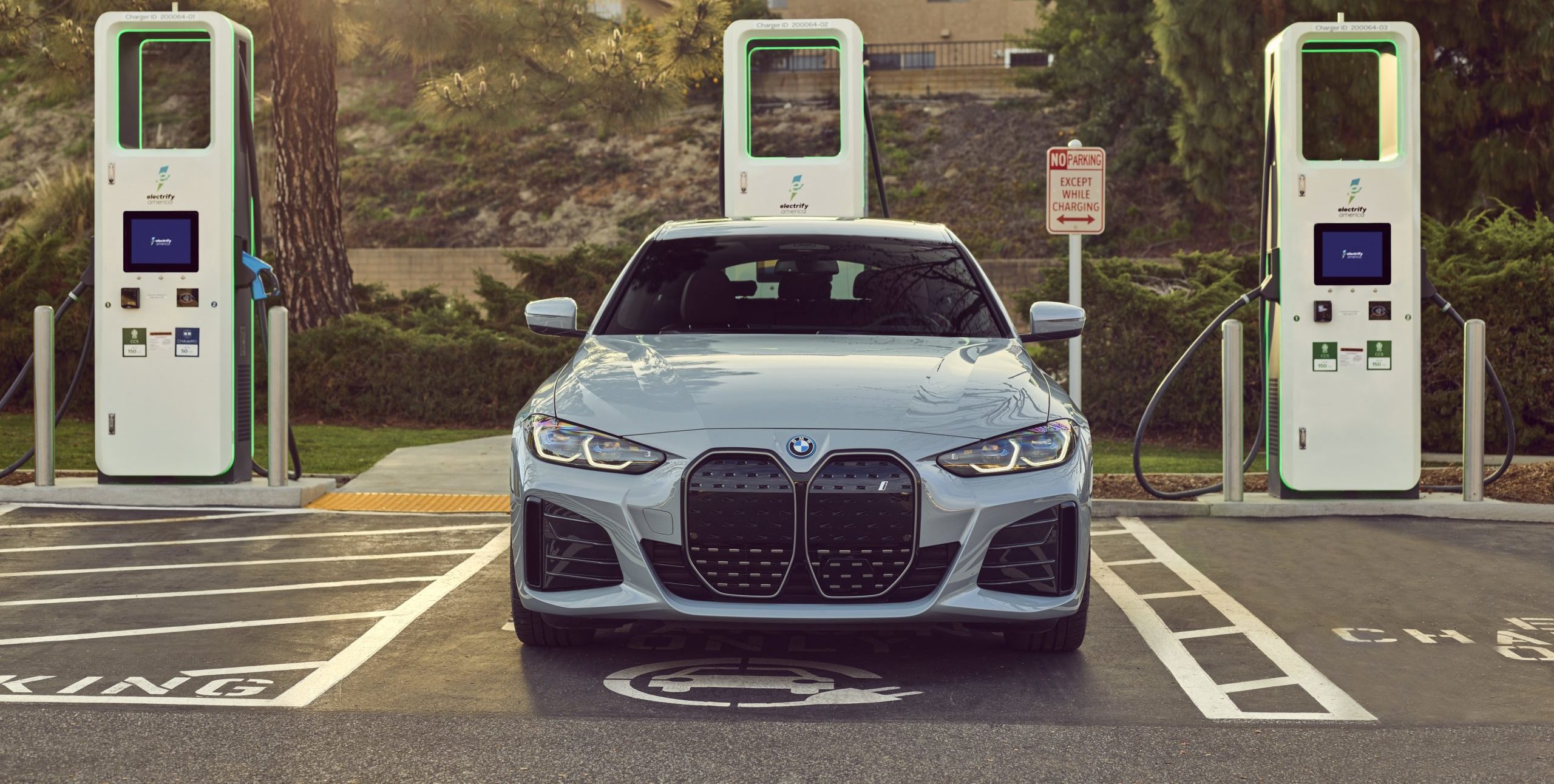
BMW i4 / BMW
In total, 596,907 BMW Group vehicles were sold during the first quarter of 2022, of which 5.9 per cent were all-electric vehicles (admittedly 1,624 of that figure were Rolls-Royces and 47,403 were BMW Motorrad motorcycles). BMW has now set its sights on more than doubling its BEV sales in 2022 compared with last year, and, with the anticipated arrival of the fully-electric Neue Klasse from 2025 onwards, the Group aims to have two million EVs on the roads by mid-decade.
“Our clear focus is on ramping up electromobility,” BMW’s Pieter Nota explains. “In the first quarter, we stepped up the rapid pace of growth from 2021 even further and are fully on track to meet our ambitious growth targets for fully-electric vehicles in 2022.”
Fifteen fully-electric BMW Group vehicles are expected to be in production in 2022, including the iX SUV and i4 sedan – sales of which are set to begin soon – and the all-electric MINI Cooper SE.
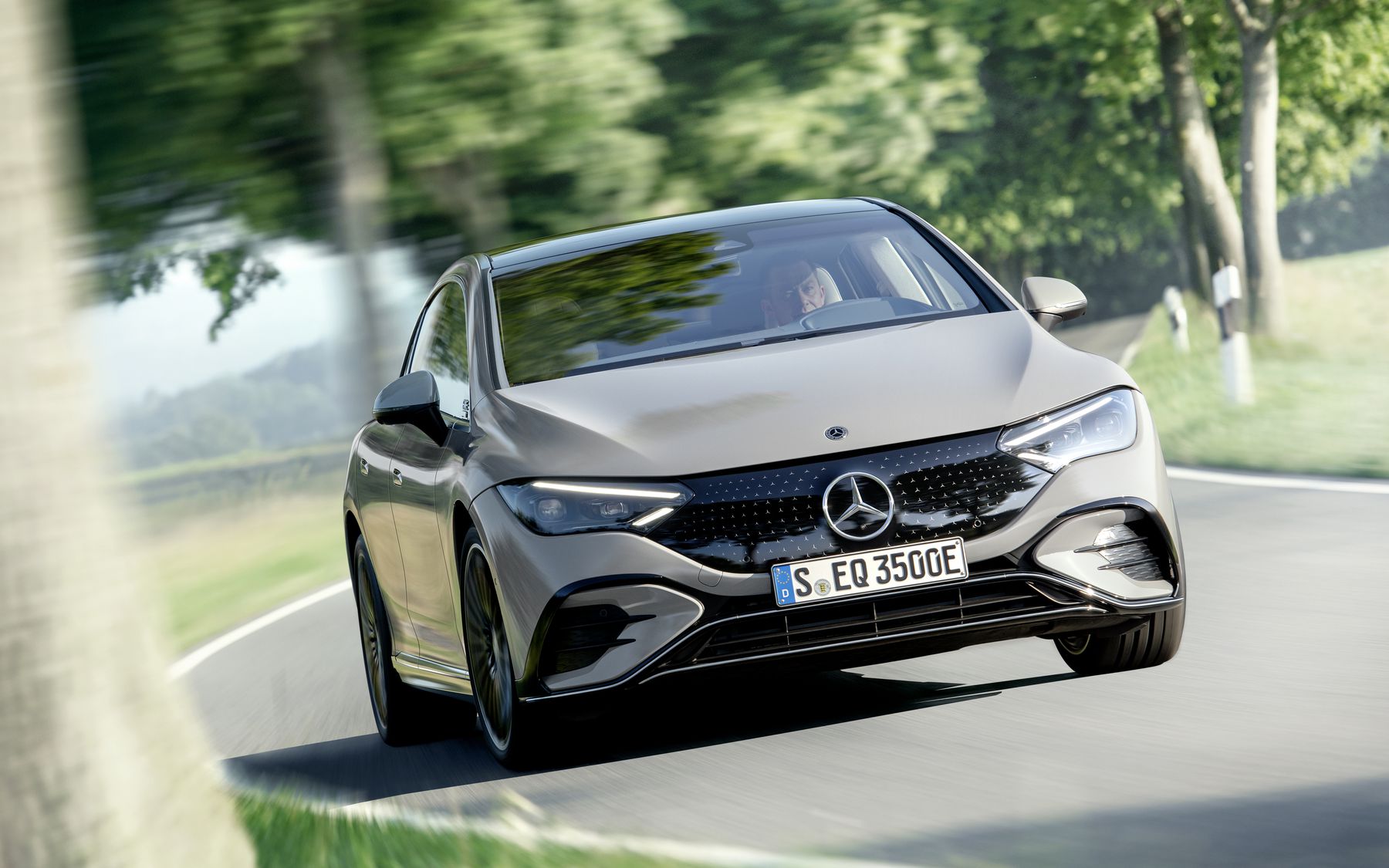
Mercedes-AMG EQE 4MATIC+
And BMW’s German rivals, Mercedes-Benz, are also winning the EV war. Despite semi-conductor shortages, upwards of 67,800 Mercedes xEV models – plug-in hybrids and BEVs – were sold between January and March, at least 21,900 of which were battery-electric vehicles. In total, sales in the EQ range, of which the EQA crossover, EQS sedan and the EQC luxury SUV led the charge, were up an impressive 210 per cent, more than triple the number of Mercedes BEV sales in Q last year. Sales of 45,900 PHEVs also represents an 8 per cent increase on Q1 2021.
In total, the Mercedes xEV range represented 15 per cent of the premium brand’s sales across the first three months of 2022. In Europe, the ratio is even higher, with xEVs accounting for 33 per cent of new Mercedes’ sales across the continent.
“In a challenging first quarter, we were able to more than triple our battery electric vehicle sales and posted a stellar result with our top-end vehicle segment,” Mercedes’ Britta Seeger explains. “Ongoing strong demand for our electrified vehicles in all segments and markets proves that customers desire our EVs und plug-in hybrids. And with the launch of our new EQS SUV, we further accelerate our transformation.”
Interestingly, while Mercedes’ recorded a stronger increase in sales across Q1 this year – 210 per cent vs ‘only’ 149.2 per cent for BMW – the BMW Group nevertheless recorded higher unit sales in the same period, delivering more than 35K BEVs to Mercedes’ nearly-22K.
Both brands were quick to mention that Covid restrictions and “highly volatile” “geopolitical uncertainties” were contributing factors.
